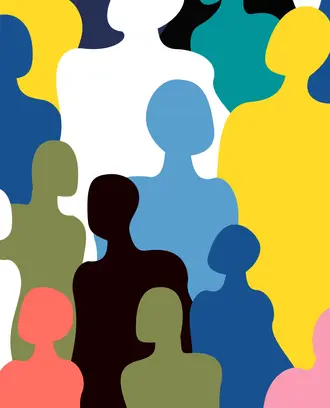New global study from MIT shows the power of accurate information to increase vaccination rates worldwide.
CAMBRIDGE, Mass., February 16, 2021--Despite the availability of multiple safe vaccines, vaccine hesitancy may present a challenge to successful control of the COVID-19 pandemic. Moreover, and perhaps more importantly, vaccine hesitancy may be caused not simply by fears about the safety or efficacy of the vaccine, but instead by the inaccurate belief that many of your peers or social cohort are not being vaccinated.
A recent working paper entitled “Surfacing Norms to Increase Vaccine Acceptance” written by two MIT Sloan Professors, and, of the MIT Initiative on the Digital Economy, with Sloan PhD student Alex Mohering, post doctoral researchers Kiran Garimella and Amin Rahimian, and Avi Collis of the University of Texas, set out to study the relative importance of the beliefs that people hold about the acceptance of vaccines by others.
After studying the responses of over 300,000 people in 23 countries, the study showed that accurate information about descriptive norms can substantially increase intentions to accept a vaccine for COVID-19, reducing the fraction of people who are “unsure” or negative about accepting a vaccine by five percent. In other words, clear and accurate information about the behavior of others can influence behavior in a positive way.
“While public health officials and the media have been emphasizing the potential negative impact of vaccine hesitancy, our study found that emphasizing the overwhelming vaccine acceptance expressed by most people is a better way to get those who are unsure to accept COVID-19 vaccines,” says Sinan Aral.
These results suggest that public health communications should present information about the widespread and growing intentions to accept COVID-19 vaccines—and not overly emphasize the fear that the vaccine will not be accepted among a large portion of the population.
“Humans are innately sensitive to the behaviors of others. This pandemic is tragic enough without adding to the suffering by overestimating and over-communicating the fear that some will not accept the vaccine. The best way forward, as is often the case, is the presentation of clear, accurate and timely information.” says Dean Eckles.
The MIT Sloan School of Management
The MIT Sloan School of Management is where smart, independent leaders come together to solve problems, create new organizations, and improve the world. Learn more at mitsloan.mit.edu.




